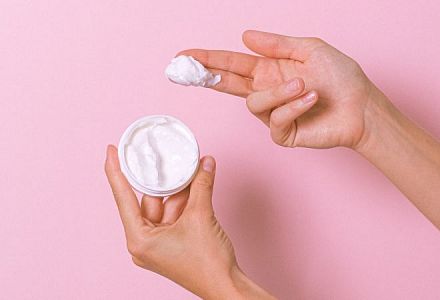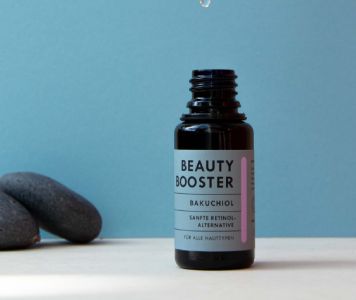
Retinol explained
Retinol is simply a derivative of vitamin A.
It can be purchased over the counter (OTC) and as a prescription medication. The only difference between the two is the level of retinol concentration, the latter having higher levels. Interestingly, some research suggests that regular use of OTC retinol may be as effective as short-term use of prescribed retinol. So the results can be experienced even with cosmetics bought in a store, not a pharmacy.
Some early studies also show that retinol might be able to not only fight the signs of aging caused by environmental factors but also protect the skin from future damage. Sounds promising!

CBD & Retinol
As is often the case with strong products, retinol may cause some side effects. These would include irritation, burning, itchiness, redness, or skin flaking.
One of the ways to best avoid these side effects is to ensure you are not using too much of your product at once. A pea size amount of retinol a day is enough. Are there other ways to limit your chances of experiencing the side effects of retinol?
A recent study from the Aesthetic Surgery Journal suggests combining retinol with CBD might reduce your chance of suffering from these side effects! Therefore, combining these two ingredients in your skincare routine could be an excellent idea.

History of Retinol
Before retinol became a popular beauty ingredient, it had been used for decades in treating acne.
It was Dr. Albert M Kligman who, in 1971, discovered retinol could benefit patients with this particular skin problem. A large medical company quickly trademarked the discovery. About 25 years later, the research has moved forward enough to see that retinol can help benefit the skin in various ways.
Many companies have since produced retinol serums and incorporated them into their products.

Good to know about Retinol
Even though retinol is safe and generally well-tolerated, there are two situations where you are better off keeping it on the shelf instead of on your face.
If pregnant or breastfeeding, you should stop using retinol products - just like many other products with (or derived from) vitamin A.
You should also avoid using it before exposing your skin to the sun.




